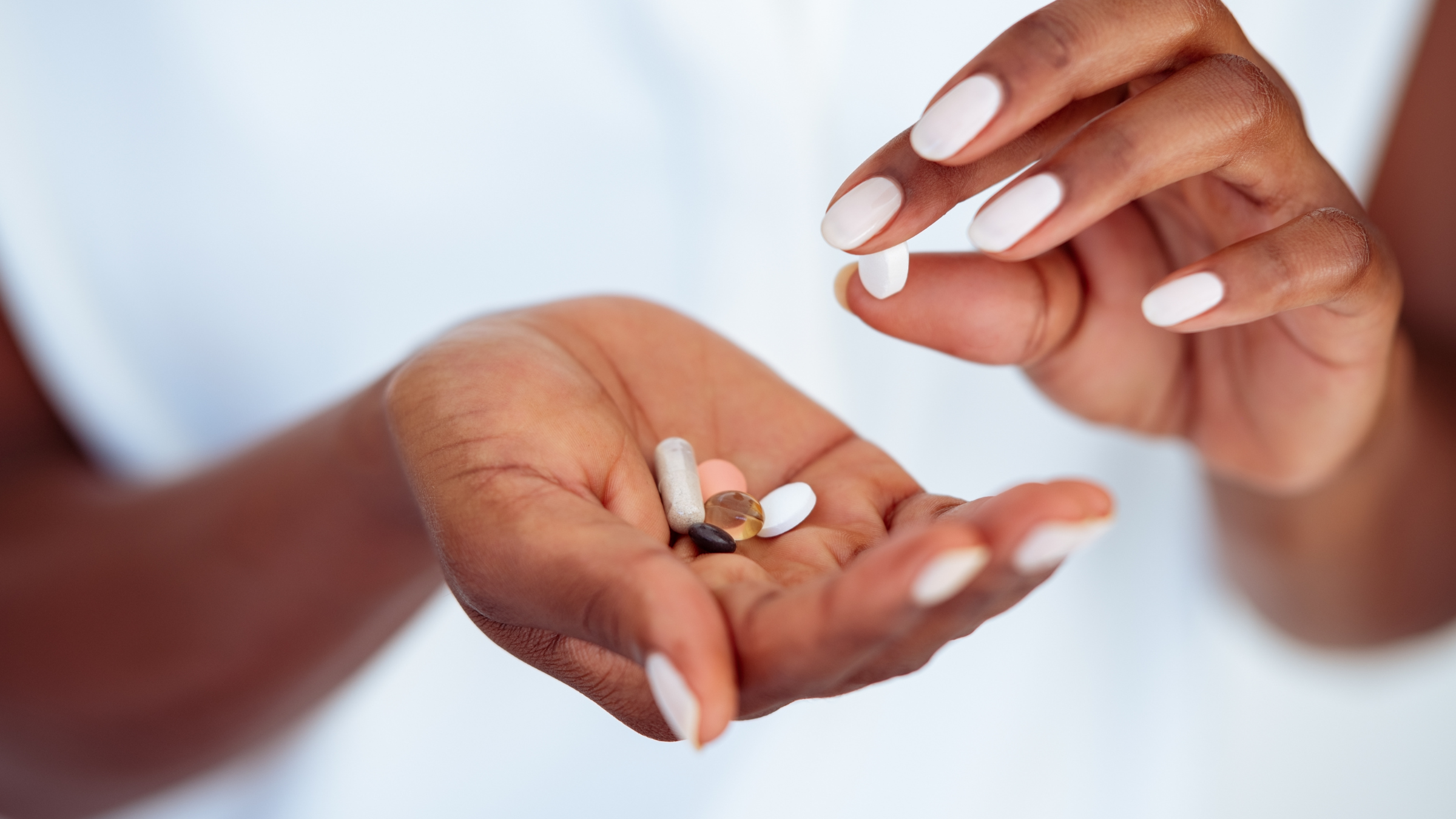Should You Add Oral Supplements to Your Skincare Routine?

(Photo: Ridofranz/gettyimages.com)
You know that having a proper skincare routine that includes serums, moisturizers, oils, and toners can help your skin look and feel its best and keep your skin healthy. But what about an oral skincare routine, fueled by dietary supplements?
Supplements can be beneficial if you’re missing nutrients in your daily diet. However, can supplements be just as effective if your skin needs a bit of a boost? We asked experts for their feedback on oral supplementation.
The Benefits of Taking Oral Supplements for Skincare
Oral supplements can be beneficial when it comes to helping your skin shine from within. According to Eddie Zhao, co-founder of Yüli, a cutting-edge skincare line, “A good skincare routine should be comprehensive, which means we should consider not only the products we use topically, but also connect our skin health to how we can support it internally.”
The best example? Staying well-hydrated. Zhao explains, “Drinking more fluids is the most effective way to keep the skin plump and hydrated. A lot of skincare products claim to detoxify… However, the skin itself does not detoxify. That needs to be done from within by supporting the immune system and the liver. Oral supplementation can optimize this support.”
Emily C Keller, MD, FAAD, a fellowship-trained laser and cosmetic dermatologist who believes in the power of preventive skincare, adds, “Topical application of products have its limitations, secondary to the size of the molecule or the fact that it cannot be stored in the skin for long periods of time. Oral supplementation allows us to get those nutrients throughout the entire body. They work for longer periods of time and can have healing effects from the inside out.”
Additionally, if you’re deficient in a particular vitamin, mineral, or nutrient, which can directly affect your skin’s health, taking a supplement can satisfy your body’s needs while also enhancing skin’s wellness.
Oral Supplements Can Have Drawbacks
If you’re using oral supplements in your skincare routine, err on the side of caution. They can cause unexpected reactions, especially if you’re taking too many supplements.
For example, Zhao shares that he upped his vitamin B intake during a business trip to help with jet lag and ended up breaking out due to an overdose of vitamin B6 and B12. As with anything, Zhao states, “you need to give your body what it needs in the right amounts and not overdo it.”
Keller echoes that sentiment: “Taking supplements in abundance can have deleterious effects.” More doesn’t mean better results. Always check with your dermatologist before orally supplementing for skincare. They’ll help you determine if you need the supplement in the first place, and how much of it you should be taking.
These Oral Supplements May Enhance Your Skin
These are the dietary supplements experts suggest can offer the biggest potential benefits for your skin.
Collagen
Zhao notes that “applying collagen topically to your skin is not the way to go and doesn’t work in topical form.” Collagen is important for skin health because it keeps our skin plump and prevents it from sagging. Instead of seeking out skincare products featuring collagen, taking collagen orally through bone broths or collagen supplements will ensure your body properly absorbs and utilizes it.
Polypodium leucotomos
An extract from a tropical fern plant, polypodium leucotomos helps reduce scaly, itchy, and sunburned skin, in addition to reducing symptoms of eczema and psoriasis. Keller notes it’s good to take orally to treat these inflammatory skin conditions and reduce the risk of sun damage. The antioxidants are better absorbed when consumed as an ingestible.
Beta-carotene
Beta-carotene is another antioxidant that can protect the skin from UV radiation and reduce the risk of premature skin aging. Keller recommends taking it orally, if needed. Beta-carotene-rich food sources include sweet potatoes, carrots, butternut squash, cantaloupe, apricots, dark leafy greens, like kale, broccoli, peas, and red and yellow bell peppers. Pro-tip: Pairing these foods with a healthy fat, like olive oil, avocados, or nuts, can increase the body’s absorption of beta-carotene. Cook the veggies in olive oil or have fruit with nuts for a snack.
*As mentioned above, always check with your dermatologist first before supplementing.
Can You Have a Skincare Routine That’s Completely Orally Supplemented?
Zhao advises against this. “There is no ingestible that can substitute a sunscreen, nor a supplement that can replicate the exfoliating powers of a good acid toner, and you need that baseline manual action of a cleanser to cleanse your skin.”
Instead, Zhao recommends using a combination of both oral supplementation and topical skincare products to complement one another. “Coming from a foundation in Traditional Chinese Medicine, it’s about bringing balance and supporting the body from the outside and from within. Our skincare provides that direct touch-point of immediate contact and engagement with the skin,” explains Zhao. Continue with your topical skincare routine and, as the word “supplement” suggests, use dietary supplementation as an added bonus.